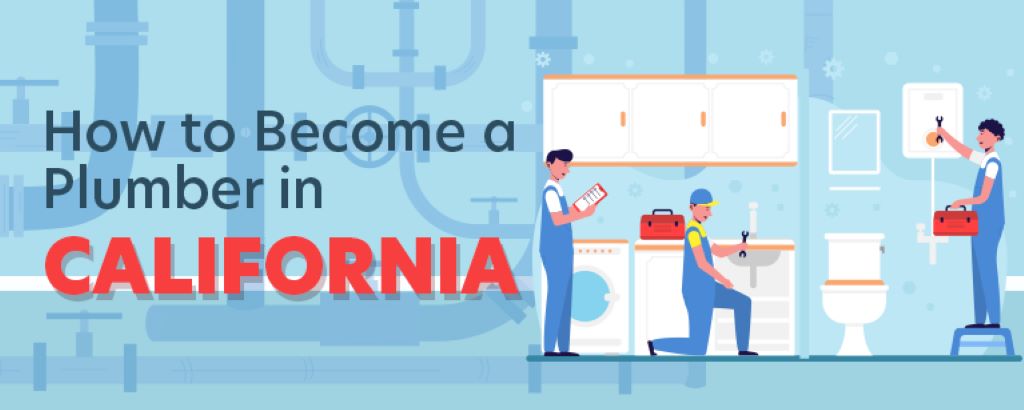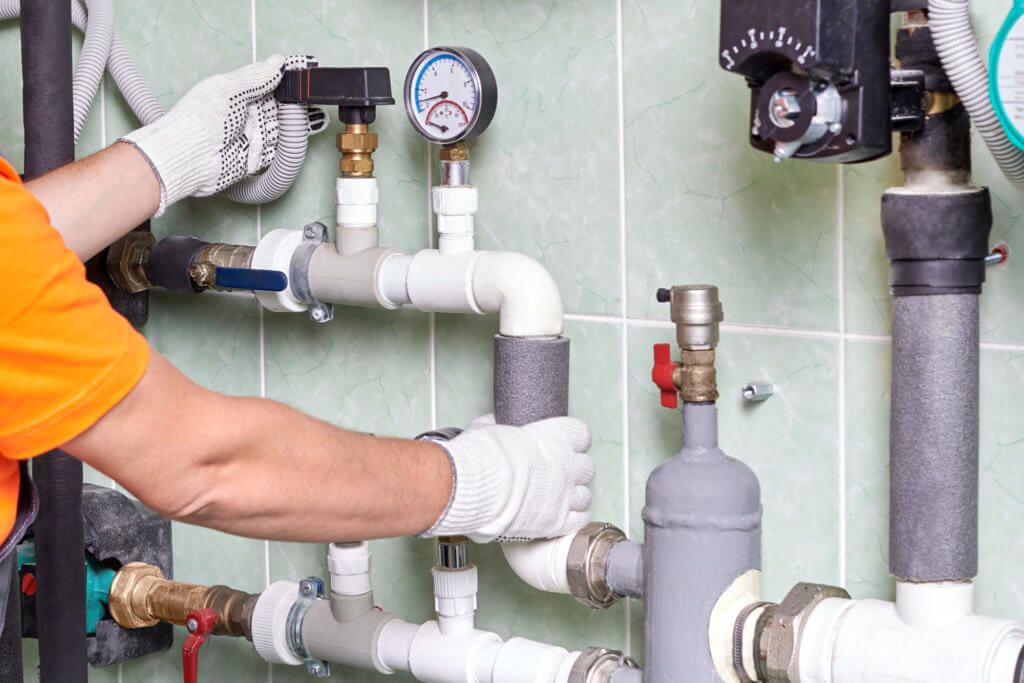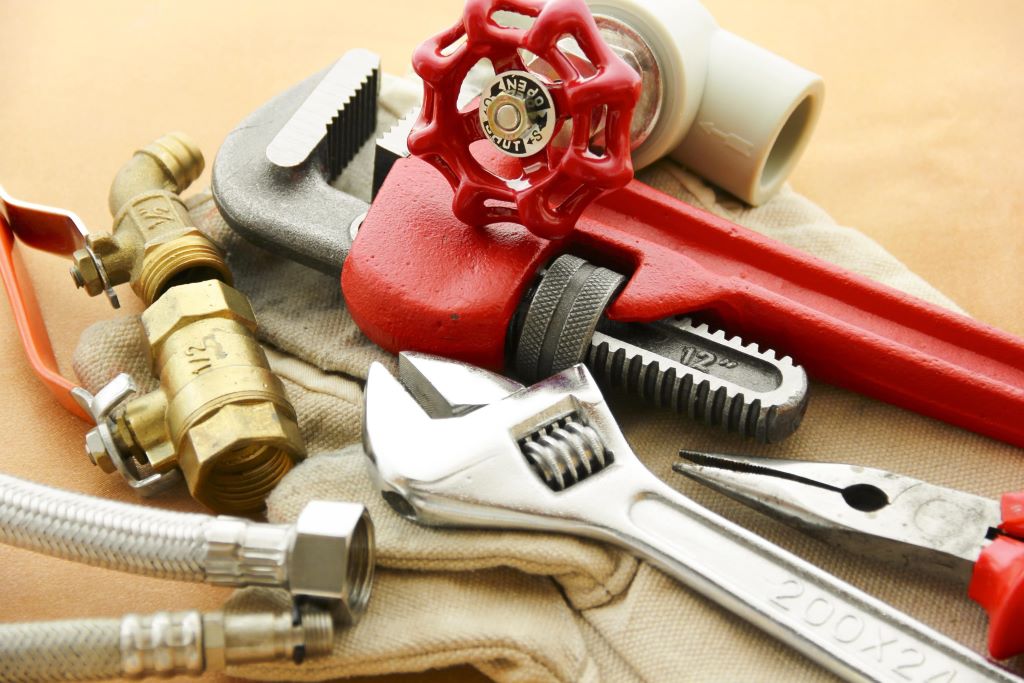To become a plumber in California, you need to complete a plumbing apprenticeship and pass the state licensing exam. The apprenticeship typically lasts 4-5 years and includes both on-the-job training and classroom instruction.
Becoming a plumber in California offers an opportunity to work in a high-demand field with potential for steady employment and competitive wages. As a plumber, your skills will be essential for installing, repairing, and maintaining plumbing systems in residential and commercial buildings.
If you are interested in pursuing this career path, it’s important to understand the requirements and steps needed to become a licensed plumber in California. In this guide, we will explore the qualifications, training, and licensing process necessary to start a successful career as a plumber in the Golden State.
Why Pursue A Career In Plumbing In California?
Considering pursuing a plumbing career in California? The job outlook and demand are promising, offering high earning potential. As a plumber, you can enjoy a stable and rewarding career in California.
Requirements For Becoming A Plumber In California
To become a plumber in California, you must meet certain requirements. Education and training are essential, and completing an apprenticeship program is a common path. Additionally, acquiring the necessary licenses and certifications is important. Pursuing formal education in plumbing prepares you for the practical aspects of the job. Apprenticeship programs provide hands-on experience and training under the supervision of experienced plumbers. Obtaining licenses and certifications demonstrates your competency and legal authorization to work as a plumber. Fulfilling these requirements is crucial to becoming a successful plumber in California.
Steps To Become A Licensed Plumber In California
To become a licensed plumber in California, there are several steps you need to follow. First, complete your high school education. Then, enroll in a plumbing trade school to gain the necessary knowledge and skills for the trade.
After completing your education, secure an apprenticeship with a licensed plumbing contractor. This will give you hands-on experience and allow you to learn from experienced professionals in the field.
Once you have completed your apprenticeship, you will need to obtain the relevant licenses and certifications required by the state of California. These may include a license from the California Contractors State License Board and certifications such as the Journeyman Plumber certification.
Finally, you will need to pass the State Journeyman Plumber Exam to demonstrate your knowledge and competency in the plumbing trade. Once you have completed these steps, you will be well on your way to becoming a licensed plumber in California.
Building A Successful Career As A Plumber In California
Building a successful career as a plumber in California requires ongoing continuing education and skill development. To stay up-to-date with the latest industry standards and codes, it is essential for plumbers to participate in relevant training programs and workshops. These opportunities provide valuable knowledge and enhance expertise in various plumbing techniques and technologies.
Additionally, joining professional associations, such as the Plumbing-Heating-Cooling Contractors Association (PHCC) or the California Plumbing & Mechanical Contractors Association (CPMCA), can offer numerous benefits. These associations provide access to educational resources, networking opportunities, and industry updates. By becoming a member, plumbers can establish connections with other professionals, share best practices, and stay informed about the latest trends and regulations.
Moreover, establishing a network of contacts can greatly contribute to a plumber’s success. Building relationships with suppliers, contractors, and other industry professionals can lead to potential job opportunities, referrals, and collaborations. Connecting with other plumbers through social media platforms or attending trade shows and conferences can help expand one’s professional network and enhance career prospects.
Challenges And Rewards Of Being A Plumber In California
Becoming a plumber in California presents unique challenges and rewards. The physical demands can be demanding, but the workplace conditions, such as working indoors and outdoors, offer variety. Plumbers often find job satisfaction due to the ability to solve problems and provide essential services to the community. Independence is another benefit, as plumbers can choose to work independently or join established companies. The career growth opportunities are promising, with the potential to advance to higher positions or even start their own plumbing business. Plumbers can acquire additional skills and certifications to broaden their expertise, further fueling their career growth. Overall, entering the plumbing profession in California offers a fulfilling and evolving career path for those willing to work hard and embrace the challenges.
Frequently Asked Questions For How To Become A Plumber In California
How Long Does It Take To Become A Licensed Plumber In California?
Becoming a licensed plumber in California typically takes about four to five years. This includes completing an apprenticeship program, gaining practical experience, and passing the required exams. The exact timeline may vary depending on your dedication and the program you choose.
What Are The Educational Requirements To Become A Plumber In California?
To become a plumber in California, you need to have a high school diploma or equivalent. Additionally, you must complete a plumbing apprenticeship program or a trade school program in plumbing. These educational requirements provide the necessary knowledge and skills to start your career as a plumber.
How Much Does A Plumber Earn In California?
Plumbers in California can earn a competitive salary. On average, plumbers in the state earn around $60,000 to $80,000 per year. However, this can vary depending on factors such as experience, location, and the type of plumbing work you specialize in.
With the high demand for skilled plumbers, there is ample opportunity for career and financial growth.
Conclusion
Becoming a plumber in California requires a combination of education, training, and licensure. Discover the complexities of how plumbing pipe works in our detailed guide, ‘Unveiling the Intricacies,’ and by following the steps outlined within, you can embark on a successful plumbing career, emphasizing the importance of quality education, hands-on experience, and staying informed about industry trends.
With determination and the right resources, you can thrive in this rewarding profession and make a positive impact in your community.









